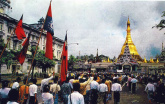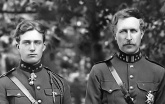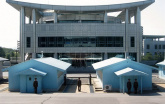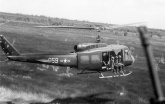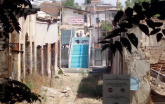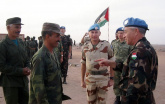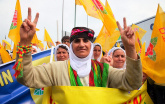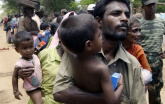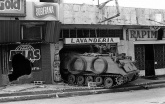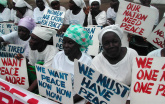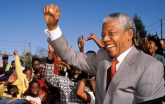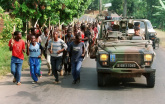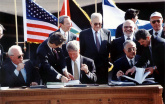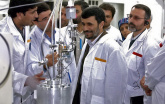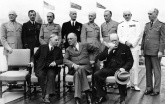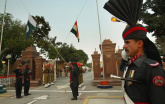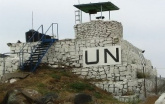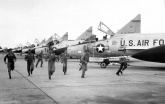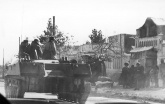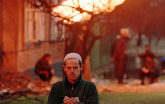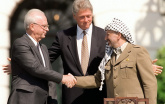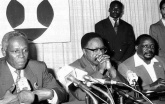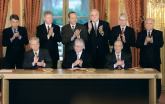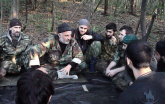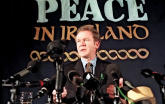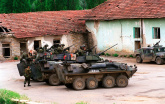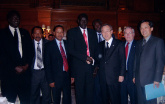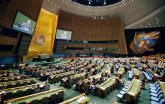A World Without Walls 2010
”An International Conference on Peacebuilding, Reconciliation and Globalization in an Interdependent World”
Peacebuilding and Reconciliation: An Introduction
Peacebuilding, as both a term and a concept, defies easy definition. As an undertaking, it is not as straightforward as simply bringing an end to conflict, for the endeavour of creating lasting peace is neither short-term nor finite. It is an ongoing process, though with a specific purpose: to rebuild nations and communities torn apart by disagreement and to prevent its recurrence. This is also true of reconciliation. Fostering understanding between groups of peoples divided by violence and mistrust is a long-term undertaking and a continuing project that remains of paramount importance to the achievement of stability in many regions of the world today.The destruction caused by two World Wars and the violence that shaped much of the twentieth century has made the work of peacebuilding and reconciliation a concern of increasing global importance. Since 1945 and the foundation of the United Nations, the work of promoting global peace has been a stated aim of the International Community. In 1948, the UN sent its Truce Supervision Organisation to oversee the armistice agreement in the Middle East. Though a peacekeeping, rather than a peacebuilding mission, it began the work of putting into practice the mandate of an organisation established with the specific aim of mitigating violent conflict between nations. It is an aim that has met with both success and failure over subsequent decades and that has been undertaken in conjunction with both governmental and non-governmental peacebuilding efforts.
In 1948, the Convention on the Prevention and Punishment of Genocide defined the crime of genocide as the “…intent to destroy, in whole or in part, a national, ethnical, racial or religious group”. It was a definition made necessary by the mass destruction wrought during the Second World War. However, the prominence of inter-ethnic violence in conflict zones throughout the world has made its relevance of continued importance in the decades since 1945. Efforts at peacebuilding and reconciliation are all the more urgent in such cases. In Rwanda, where the slaughter of almost one million people occurred over the span of one hundred days in 1994, UN intervention was decidedly ineffective in halting genocide or ending ethnic violence. In such cases, post-conflict peacebuilding has proved essential to restructuring government institutions, achieving inter-ethnic reconciliation and laying the groundwork for lasting peace.
Despite the provisions for global security enacted at the close of the Second World War, the world has continued to witness a long line of wars and disagreements since 1945. Some of these have taken the form of armed disputes and others that of conventional disagreements. In the case of both, the joint processes of peacebuilding and reconciliation are ongoing. The 1998 Good Friday Agreement represented the culmination of decades of negotiation between Ireland and the United Kingdom, focused upon finding a resolution to the violence that tore communities apart in both countries, its roots stretching back centuries. There remain countries in Europe in which minority groups occupy a marginalised position, separated both by language and by culture. Promoting cultural understanding and reconciliation in these contexts remains as important to the work of creating a world without walls as does reconciling the countries and communities of the former Soviet bloc.
The dawn of the twenty-first century has presented new, as well as existing challenges to the work of establishing lasting peace in regions affected by national, ethnic and religious violence. Despite the 2005 Comprehensive Peace Agreement between the Sudan People’s Liberation Movement and the Sudanese government, violence continues to affect Darfur, an area in which an estimated three hundred thousand people have died since the outbreak of hostilities seven years ago. The current relationship between Iran and the West, underpinned by disagreements concerning the potential for nuclear armament and the state of democracy in Iran, recalls the spectre of forty years of cold war between the United States and the Soviet Union. In such circumstances, peacebuilding and reconciliation remain a collective concern - the responsibility of the international community in a globalised and interdependent world.
